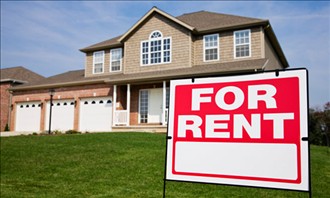Here’s some good and some bad news for you
The bad news is that contrary to all the TV shows about flipping houses and people making money, or turn-key hassle-free rental properties, real estate is actually really hard work, it’s time-consuming and it is a pretty risky place to invest your money.
The good news is that most people, with hard work and determination, can earn a fairly substantial amount of wealth over their lifetime if they educate themselves and make better decisions when purchasing property.
Here are some tips that should help you earn real estate wealth. By the way — it’s a marathon, not a sprint.
Think long term (skip get-rich-quick schemes)
Long-term ownership is the key to real estate wealth. If you buy decent properties and hold them forever, that’s going to provide the highest likelihood that your real estate will have significant equity down the road.
Also, if it sounds too good to be true, it always is — especially in real estate. Drop the idea that there is fast and easy money to be made in real estate. It’s just not true. Sometimes people get lucky, but you don’t have to worry because that “lucky” person will never end up being you.
Cash flow positive properties
A significant portion of investors buy properties that are cash-flow negative or have very low investment returns. That means the buyer puts in their equity cash capital when they purchased the property, and they are still investing additional funds each month, which could go on for decades depending on how bad of a deal they purchased.
The better way to invest is to buy properties where the rents minus all the expenses, including the mortgage payment, provide positive cash flow that you can deposit in the bank. So if you collect $1,200 in monthly rent, then subtract expenses of ($400) and a mortgage of ($500) you will have $300 per month left over. Nice job!
Simple analysis tool: The 1 percent rule
A simple way to do a quick analysis is to take the conservatively estimated monthly rental income and divide it by the purchase price of the house. You still need to pencil out your deal with rents and actual conservatively estimated expenses, but this back-of-the-napkin test is a quick and easy test to see if it makes sense.
- Example of a good deal: If you can collect $1,600 per month in rent and you paid $200,000 for the property, you are collecting rent that is 0.8 percent of the purchase price (0.8 percent = 80 basis points in financial terms). And that’s probably a really fair deal.
- Example of a bad deal: If you can collect $1,600 per month in rent and you paid $400,000 for the property, you are collecting rent that is 0.4 percent of the purchase price, or 40 basis points. And that’s not a really good deal.
Find good quality properties
Smarter investors work hard up front to find the good areas where the rents provide a nice positive cash flow and investment returns, low crime rates, better schools, and decent amenities nearby like parks or retail. Coupled with good tenants who have excellent credit, you also create low vacancy rates.
Smart investors also buy properties that are in decent shape, although every property needs paint, carpeting and some plumbing and electrical work from time to time. Do that hard work upfront and spend the money to put your properties in very good shape, you’ll get a little more rent and probably have a bigger pool of interested tenants from whom you can then choose.
Lastly, do your homework, talk to other investors, read guides and books, shop properties, pencil out deals and have a long term ownership plan. Hopefully it will translate into a nice cash flow retirement picture.
 Noel began his real estate career as a leasing agent, closing 4 leases his 1st week on the job. Since 2006, he has personally leased over 600 homes, signed up over 1000 new owners for management, and has sold over $500 million in real estate almost exclusively to, and for the benefit of investors. As the original employee, and now Broker for HomeQwik, Noel has not only assisted in the creation and management of the company, but also in the processes that make HomeQwik #1. As an owner of 2 rental properties himself, Noel also has personal experience as an investor, and has a true passion for helping others realize their investment dreams. He continues to work on building his own real estate portfolio, and is shopping for buyers in our market every single day.
Noel began his real estate career as a leasing agent, closing 4 leases his 1st week on the job. Since 2006, he has personally leased over 600 homes, signed up over 1000 new owners for management, and has sold over $500 million in real estate almost exclusively to, and for the benefit of investors. As the original employee, and now Broker for HomeQwik, Noel has not only assisted in the creation and management of the company, but also in the processes that make HomeQwik #1. As an owner of 2 rental properties himself, Noel also has personal experience as an investor, and has a true passion for helping others realize their investment dreams. He continues to work on building his own real estate portfolio, and is shopping for buyers in our market every single day. Jason Stieglitz is a Realtor and Property Manager at HomeQwik, a firm that specializes in all aspects of Residential Property Management. Jason has been an Arizona resident for almost 40 years, and in real estate since 2009. Formerly in construction, Jason can apply some of that knowledge to maintenance problem solving with your investment property.
Jason Stieglitz is a Realtor and Property Manager at HomeQwik, a firm that specializes in all aspects of Residential Property Management. Jason has been an Arizona resident for almost 40 years, and in real estate since 2009. Formerly in construction, Jason can apply some of that knowledge to maintenance problem solving with your investment property. Mike Sargent – Founder/Real Estate Investor
Mike Sargent – Founder/Real Estate Investor Jim Hughes – IT Manager
Jim Hughes – IT Manager Janie Scarborough – Business Development Manager for Prescott/Quad City Territory
Janie Scarborough – Business Development Manager for Prescott/Quad City Territory  Gk Pavillar – Manager of HomeQwik Remote Operations
Gk Pavillar – Manager of HomeQwik Remote Operations